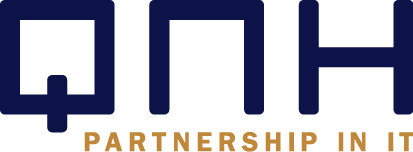Programma-inhoud
Het programma start om 09.30 uur en duurt tot 17.00 uur. Registratie is mogelijk vanaf 08.30 uur.
[Indien Online format] U ontvangt van ons ruim vooraf de documentatie, online meeting instructies en uiteraard ook de uitnodiging met hyperlink voor toegang tot de virtuele sessie. Het programma start om 13:30 uur en duurt tot 17:00 uur. Log tijdig in en controleer vooraf uw geluid- en video instellingen.
Onderwerpen
Essentials of Data Modelling
- What really is a data model or concept model?
- Essential components – entities, relationships, attributes, and rules
- Hands-on case study – how data modelling resolved business issues, and supported other business analysis techniques
- Guidelines for comprehension – how to lay out Entity-Relationship Diagrams (“ERDs”)
- The narrative parts of a data model – definitions and assertions
- Group exercise – getting started on a data model, then refining it
- Common misconceptions about data models and data modelling
- The real purpose of a data model
- Contextual, Conceptual, and Logical Data Models – purpose, audience, definition, and examples
- Overview of a three-phase methodology for developing a data model
Establishing the initial conceptual data model
- Top down vs. bottom up approaches to beginning a data model – when is each appropriate?
- A bottom-up approach focusing on collecting and analyzing terminology
- A structure for sorting terms and discovering entities
- Exercise – developing an initial conceptual data model
- Entities – what they are and are not
- Guidelines for naming and defining entities
- Three questions to help you quickly develop clear, useful entity definitions
- Exercise – identifying flawed entities
- Six criteria that entities must satisfy, and four common errors in identifying entities
- Identifying relationships
- Fundamental vs. irrelevant or transitive relationships
- Good and bad relationship names
- Multiplicity or cardinality – 1:1, 1:M, and M:M relationships, and useful facts about each
- Common errors and special cases – recursive, multiple, and supertype-subtype relationships
- Attributes – guidelines and types
- Attributes in conceptual models vs. logical models
Developing the initial logical data model by adding rigor, structure, and detail
- Transition to the logical model – shifting the focus from entities to attributes
- Multi-valued, redundant, and constrained attributes, with simple patterns for dealing with each
- An understandable guide to normalisation – first, second, and third normal forms
- Higher order (fourth and fifth) and Boyce-Codd normal forms
- Exercise – developing the initial logical data model
- Four types of entities – kernel, characteristic, associative, and reference
- Guidelines and patterns for dealing with each type of entity
- How to draw your E-R Diagram for maximum readability and correctness
- Optional and mandatory relationships
- Considering time and history when looking at relationships
- Typical attribute documentation
- A common source of confusion and disagreement – primary keys
- What primary keys are, what they’re really for, and three essential criteria
- The four Ds of data modelling – definition, dependency, detail, and demonstration
- E-R Diagramming – symbol sets and their problems, rules for readability and comprehension
Correctly handling attributes
- Granularity – dealing with non-atomic and semantically overloaded attributes
- Dealing with reference data and the “types vs. instances” problem
- Three attributes that always need a qualifier
- Vector modelling – entity or attribute?
Interesting structures – generalisation, recursion, and the two together
- Generalisation (subtyping) – when to use it, and when not to
- Generalisation with and without specification
- Guidelines for using recursive relationships
- Generalisation and recursion working hand-in-hand as a cure for literalism
- Recognizing lists, trees, and networks, and modelling them with recursive relationships
- Modelling difficult rules by combining generalisation (subtyping) and recursion
- Staying clear on generalisation vs. roles, states, and aggregation
Modelling time, history, and time-dependent business rules
- Historical vs. audit data, and when to show them on a data model
- Thanks, Sarbanes-Oxley! Why we need “as-of reporting” and how to model data corrections
- “Do you need history?” – how to tell when your client is misleading you
- Modelling time – special considerations for recording past, present, and future values
- Four variations on capturing history in a data model
- Seven questions you should always ask when a date range appears
Modelling rules on relationships and associations
- Using multi-way associations to handle complex rules
- “Use your words” – how assertions, scenarios, and other techniques will improve your modelling
- Associative entities – circular relationships, shared parentage, and other issues
- Alternatives for modelling constraints across relationships
- Advanced normal forms – how to quickly recognize potential 4NF and 5NF issues
- A simpler view – why the five normal forms could be reduced to three
Preparing and delivering a data model review presentation
- Context – your audience, and why the model matters to them
- It’s a story, not a data model! Building a storyboard
- Five key techniques for presenting data models or other technical subjects
- The mechanics of the data model review presentation
- A demonstration
Bridging the “E-R vs. Dimensional” divide – the world’s shortest course on dimensional modelling
- The perils of dimensional modelling without understanding the underlying E-R model
- Spotting facts and dimensions – the relationship between dimensional models and E-R models
- Saving time – building a first-cut dimensional model from an ER model








